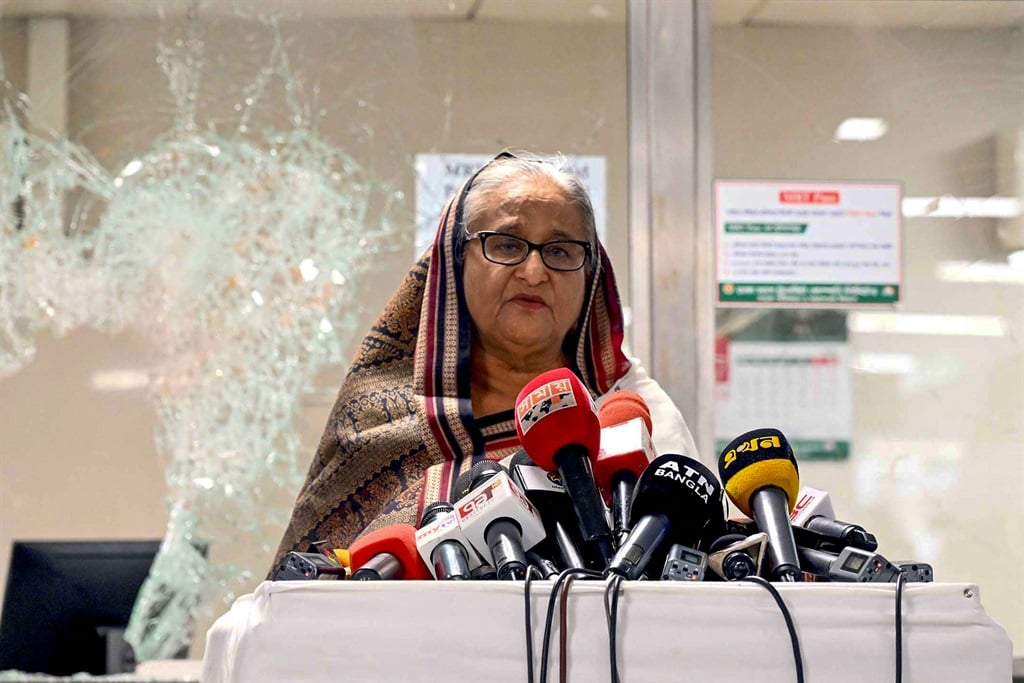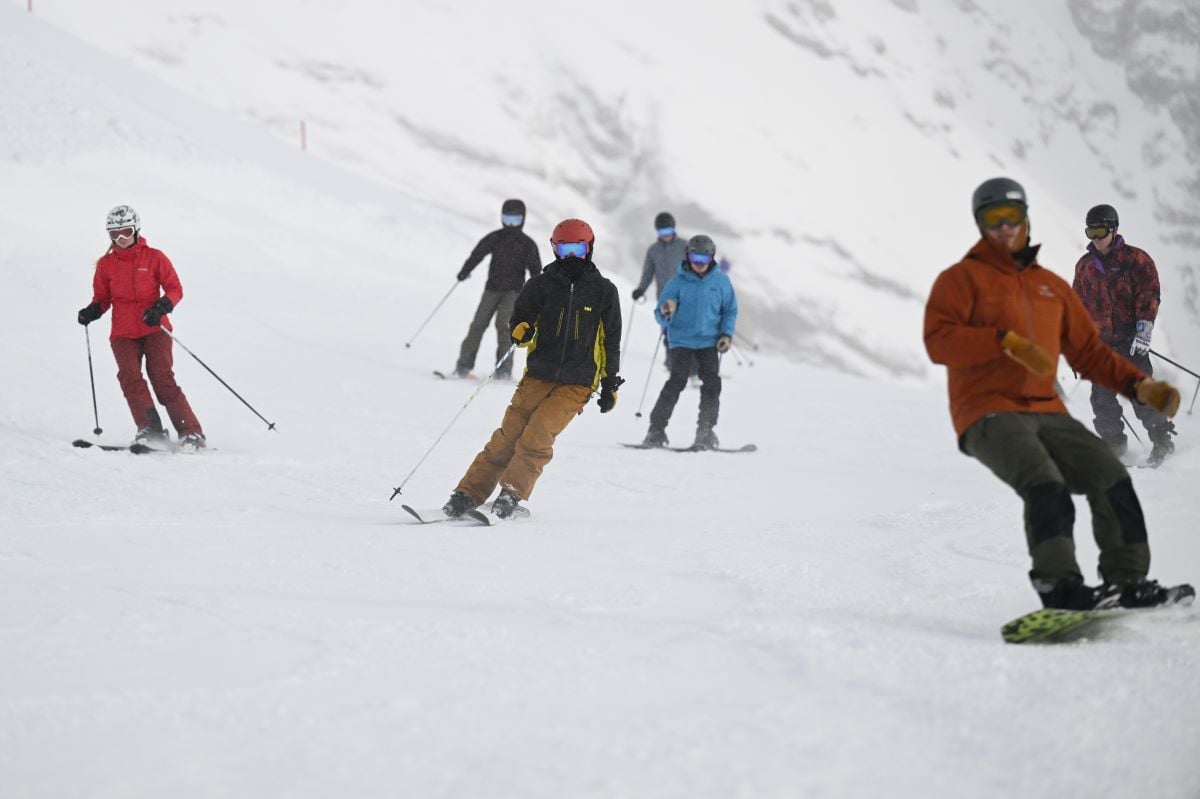Bangladesh Prime Minister Sheikh Hasina. (Bangladesh Prime Minister’s Office / AFP)
- Bangladesh Prime Minister Sheikh Hasina has reportedly resigned and fled the country.
- Protesters stormed her office on Monday.
- Anti-government rallies against civil service job quotas began last month.
Bangladesh Prime Minister Sheikh Hasina has resigned and left the country on Monday, media reports said, as more people were killed in some of the worst violence since the birth of the South Asian nation more than five decades ago.
Student activists had called for a march to the capital Dhaka on Monday in defiance of a nationwide curfew to press Hasina to resign, a day after deadly clashes across the country killed nearly 100 people.
Bangladesh’s Channel 24 broadcast images of crowds running into the premier’s official residence in the capital, waving to the camera as they celebrated.
READ | Bangladesh anti-government riots total death toll at least 300 with fresh protests expected on Monday
Various sources said Hasina and her sister had already left for India by military helicopter.
Her US-based son, Sajeeb Wazed Joy, had called on security forces to block her overthrow.
“Your duty is to keep our people safe and our country safe and to uphold the constitution,” he said in a post on Facebook.
“It means don’t allow any unelected government to come in power for one minute, it is your duty.”
Joy, who is also an information and communications technology advisor to Hasina, warned progress made by Bangladesh would be threatened if she were forced out.
“Everything of our development and progress will vanish. Bangladesh would not be able to come back from there,” he said.
More deaths
As protesters began to march in some places, armoured personnel carriers and troops patrolled the streets of the capital.
At least six people were killed in clashes between police and protesters in the Jatrabari and Dhaka Medical College areas on Monday, the Daily Star newspaper reported.
Police hurled used flash-bang grenades in some parts of the city to disperse small groups of protesters, the Bengali language Prothom Alo newspaper reported.
READ | At least 91 killed as clashes rock Bangladesh, curfew imposed
Elsewhere, thousands of protesters had surrounded law enforcement officers stationed in front of a key building, it said.
Army chief General Waker-Uz-Zaman, was “holding talks with some stakeholders, outside the military”, an army officer told Reuters.
Bangladesh has been engulfed by protests and violence that began last month after student groups demanded scrapping of a controversial quota system in government jobs.
That escalated into a campaign to seek the ouster of Hasina, who won a fourth straight term in January in an election boycotted by the opposition.
At least 91 people were killed and hundreds injured on Sunday in a wave of violence across the country of 170 million people as police fired tear gas and rubber bullets to disperse tens of thousands of protesters.
Starting Sunday evening, a nationwide curfew has been imposed, the railways have suspended services and the country’s huge garments industry has closed.
Rallies that began last month against civil service job quotas have escalated into some of the worst unrest of Hasina’s 15-year rule and shifted into wider calls for the 76-year-old to resign.
– Additional reporting by AFP





















Discussion about this post